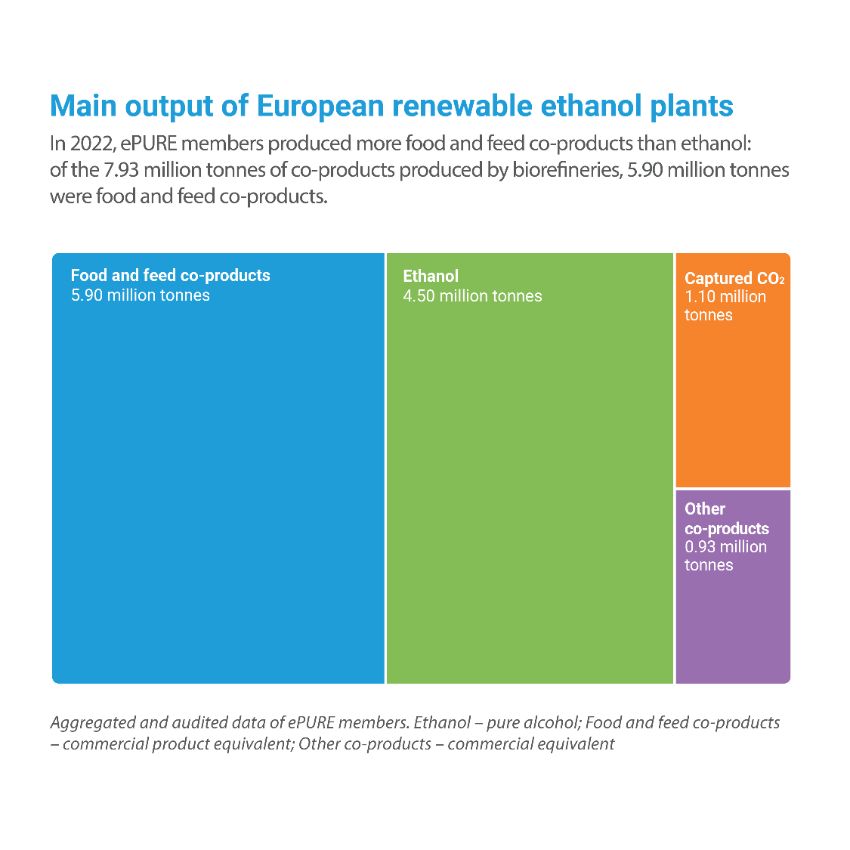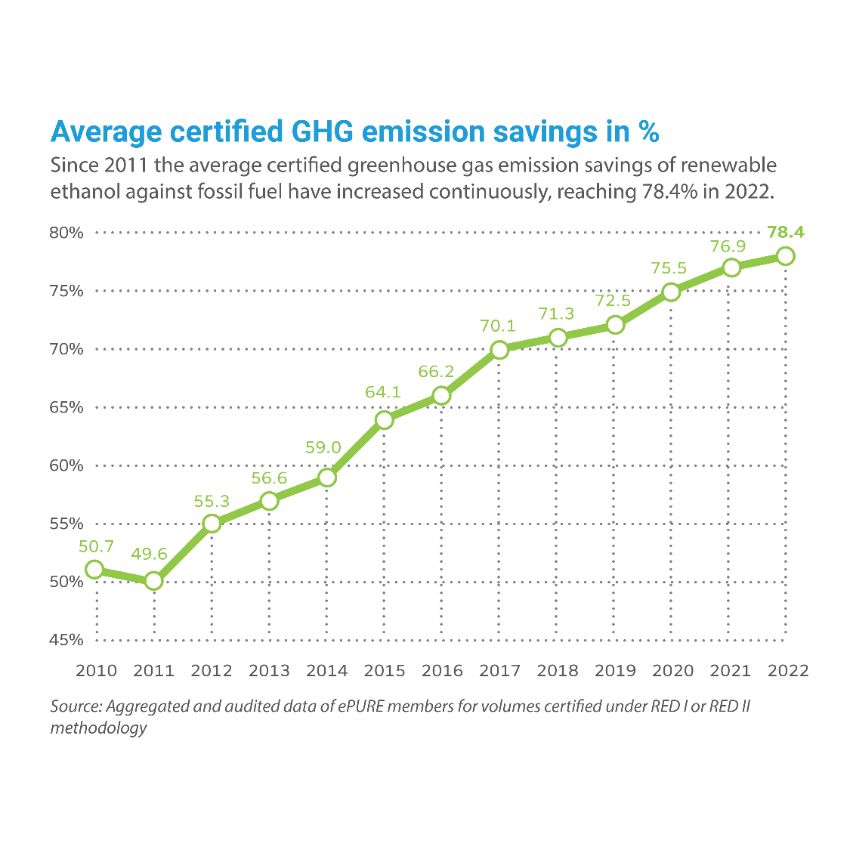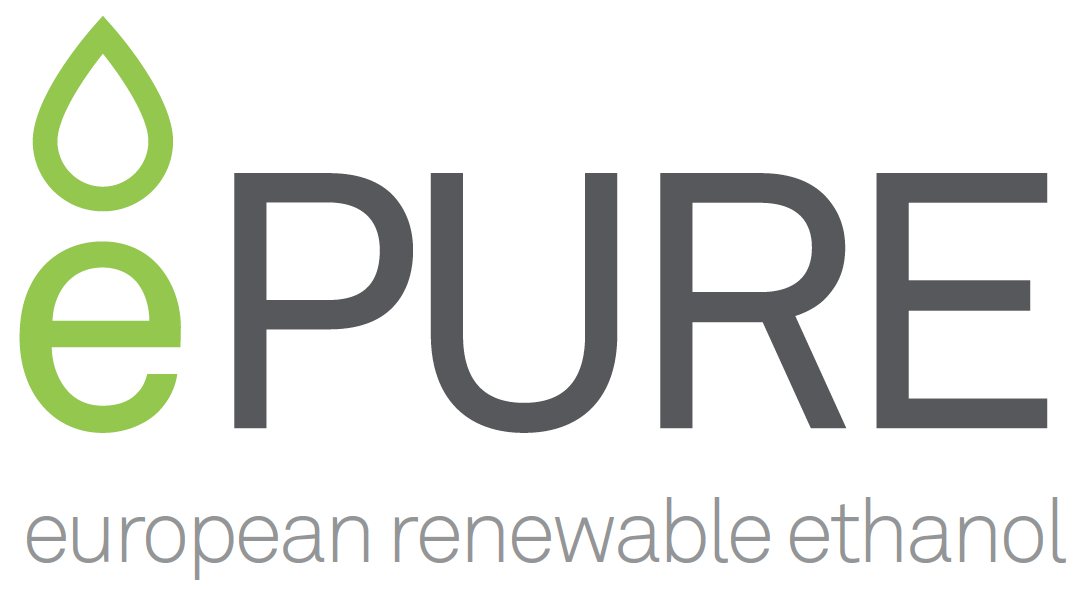The role of sustainable biofuels in the transition from a fossil-based economy to carbon neutrality has been the subject of intense and often misinformed debate over the last few years, but as the European Union enters a new political cycle, there is cause for optimism that Europe could move to a more constructive discussion.
One notable bright spot was the declaration by the G7 group of leading economic nations – in a statement co-signed by EU leaders – that sustainable biofuels have a vital role to play in transport de-fossilisation. This was a welcome turnaround from recent policy developments that did not take into full account the proven contribution of biofuels to reducing greenhouse gas (GHG) emissions in transport.
Such a mindset shift is needed if the EU wants to achieve its goals on food security, energy independence and climate change mitigation. Ignoring or downplaying the benefits of biofuels, such as renewable ethanol, only makes those ambitions harder to realise.
Consider these four reasons why the EU approach to sustainable biofuels needs to be more open-minded in the coming years.
Ethanol biorefineries play a strategic role in the EU
Ethanol biorefineries across the EU contribute to several European strategic objectives, including:
- Climate change mitigation: Biofuels continue to be the main renewable energy in transport and a proven solution for reducing emissions from cars. According to the latest data, renewable ethanol produced by ePURE members reduced GHG emissions by more than 78 per cent compared to fossil fuel and is getting closer to carbon neutrality every year. It works in today’s petrol and hybrid cars – which are the majority of new cars Europeans continue to buy – and in existing infrastructure.
- Energy independence: Domestic production of renewable ethanol helps reduce the EU’s dependence on imported fossil fuel. EU policies that unfairly hamper the use of sustainable biofuels, such as ethanol, are by definition opening the door to more fossil oil.
- Food security: The “food versus fuel” argument reared its head again in 2022, but once again has been shown to be a myth. In fact, EU biorefineries produced more food and animal feed than fuel in 2022, helping reduce the EU’s need to import protein. Considering that ePURE members used multi-purpose crops to co-produce 5.9m tons of food and feed last year in addition to ethanol, there does not have to be any trade-off.
- Strategic autonomy: Domestic ethanol production also creates other beneficial products, including biogenic CO2 to replace fossil CO2 in beverage and industrial applications. This domestic production is essential to ensure supply.
The EU approach to emissions-reduction should be open to all technologies
Europe can’t afford to bet on only one solution for reducing emissions from cars. That’s not just common sense; it’s also the finding of the European Court of Auditors which, in a recent report, warned against the current EU strategy of focusing only on electric vehicles as the way to de-fossilise road transport.

The EU’s main auditing institution found that Europe’s ambition to rely on electric vehicles for road transport while phasing out all other options leaves it vulnerable to long-term dependency on China and the US for battery technology and threatens its ability to meet goals for reducing emissions from cars.
In other words, the consequences of banning new sales of internal combustion engine cars after 2035, without making allowances for cars that could run on carbon-neutral liquid fuels, are potentially serious for the EU and its citizens. In the coming months, the EU will be trying to clarify its definition of CO2-neutral fuels.
CO2-neutral liquid fuels are vital to de-fossilisation
Even with the recent market growth in sales of battery-electric vehicles, Europeans continue to buy mostly petrol and hybrid cars. These cars run on liquid fuel and will be on the roads for a long time to come. Low-carbon liquid fuels are the only way to reduce their emissions.
But new cars could also be produced that take better advantage of the existing benefits of biofuels. In France, for example, many motorists use E85 fuel, with up to 85 per cent renewable ethanol. One study showed that hybrid cars running on E85 are more climate-friendly than battery-electric vehicles when the full emissions lifecycle is considered. In India, a new flex-fuel hybrid Toyota is being commercialised that can run on 100 per cent ethanol and uses its electric engine 40 to 60 per cent of the time.
Innovations in production are already increasing the GHG-savings score of renewable ethanol, in some cases to more than 90 per cent compared to fossil. More countries could adopt higher blends of ethanol as the standard petrol, making an immediate impact on transport emissions.

The fight against climate change must be socially inclusive
A socially inclusive transition to carbon neutrality should empower all European citizens, not just those who can afford new technologies, and all countries, not just those that can afford new infrastructure.
As the Court of Auditors report makes clear, Europe needs more than one solution to achieve real transport de-fossilisation today and tomorrow without hitting consumers’ purchasing power and adapting to their needs and desire for independence and mobility.
In the months ahead, as the political rhetoric around EU energy and climate policy intensifies, we encourage policymakers to adopt this more inclusive and technology-open approach. It’s a win-win-win situation for achieving EU strategic goals, supporting domestic agricultural production and industry, and making sure all Europeans can play a role in the fight against climate change.
In partnership with

This article was produced in partnership with ePure.
Sign up to The Parliament's weekly newsletter
Every Friday our editorial team goes behind the headlines to offer insight and analysis on the key stories driving the EU agenda. Subscribe for free here.